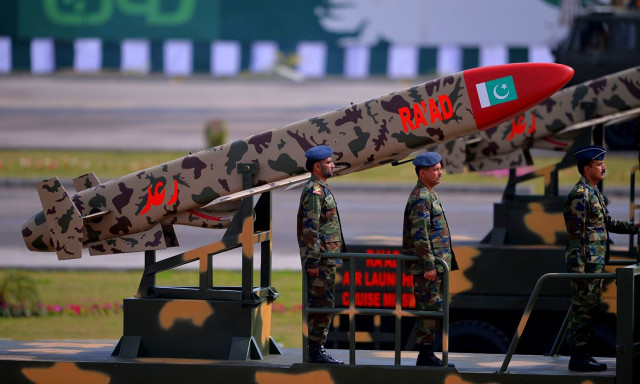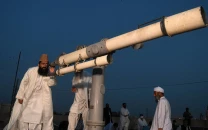Dr AQ Khan: national icon who made Pakistan N-power
Under Dr Qadeer's leadership, Islamabad is believed to have silently developed its nuclear programme in the 1980s

Pakistan's leading atomic scientist Abdul Qadeer Khan, who died in the capital Islamabad on Sunday after a protracted illness, was hailed as an icon for creating Pakistan's nuclear capability in the face of a four-time bigger India.
Born in 1936 in Bhopal, India, and later immigrated to Pakistan with his family in 1951, four years after the partition of the sub-continent, Dr Qadeer received his early education in Karachi and attended the prestigious DJ Science College.
He graduated from the University of Karachi in 1960 with a degree in metallurgy. In 1967, he received a master’s degree in metallurgy in Delft, the Netherlands.
In 1972, Dr Qadeer earned a doctorate in metallurgical engineering from the Catholic University of Leuven in Belgium.
He married Hendrina Reterink, a British national who had been born to Dutch expatriate parents in South Africa, in 1964. The couple had two daughters.
He joined Pakistan's fledgling nuclear programme in 1976 on the reported request of then prime minister Zulfikar Ali Bhutto, two years after India conducted its first "successful" nuclear test in 1974.
Dr Qadeer at that time was working in the Netherlands.
Under Dr Qadeer's leadership, Islamabad is believed to have silently developed its nuclear programme in the 1980s but did not officially test it until May 1998.
READ Nuclear scientist Dr Abdul Qadeer Khan passes away at 85
In 1986, tensions soared between the two countries as India launched Operation Brasstacks – a major combined military exercise in the deserts of Rajasthan state amid insurgency and the Sikh separatist movement in the Indian province of Punjab.
Global security experts have described these war games as "bigger than any NATO exercise – and the biggest since World War II".
Pakistan quickly responded with maneuvers of its forces, first mobilising the entire 5th Corps and then the Southern Air Command, near the Indian state of Punjab. In January 1987, Pakistan put its entire nuclear installations on "high alert".
As the crisis heightened, Pakistan's then-president Ziaul Haq secured an invitation from the Board of Cricket Control of India to watch a cricket match between the two countries in February 1987. Although Ziaul Haq did not meet formally with then Indian prime minister Rajiv Gandhi, both of them met briefly at the airport lounge. According to the BBC reports, he told Gandhi that Pakistan had a nuclear bomb.
Behra Manan, an adviser to Rajiv Gandhi, later wrote that Ziaul Haq had delivered a stern message that in case the conflict went out of control, he would use nuclear buttons. The tensions diminished soon and a month later both countries agreed to withdraw 150,000 troops from the disputed Kashmir region, followed by a second agreement to withdraw more troops from the desert area.
Also known as “Mohsin-e-Pakistan”, Dr Qadeer was the only Pakistani to receive the country's top civilian awards thrice.
For longtime rival India that joined the nuclear club long before Pakistan, Dr Qadeer was responsible for following suit, whereas, for the US and Europe, he was allegedly involved in "selling" nuclear secrets to the "rogue" nations including Libya, Iran, and North Korea.
The allegations gained weight by Dr Qadeer’s "sorry" to the nation in an unscheduled broadcast in February 2004, taking "full responsibility" for his actions.
His supporters, nonetheless, believed he was forced to take the responsibility for the actions of "others," whereas Pakistan's then military ruler Gen Pervez Musharraf claimed that the "confession" had not only "saved" Dr Qadeer himself, but the country’s nuclear programme as well.



















COMMENTS
Comments are moderated and generally will be posted if they are on-topic and not abusive.
For more information, please see our Comments FAQ